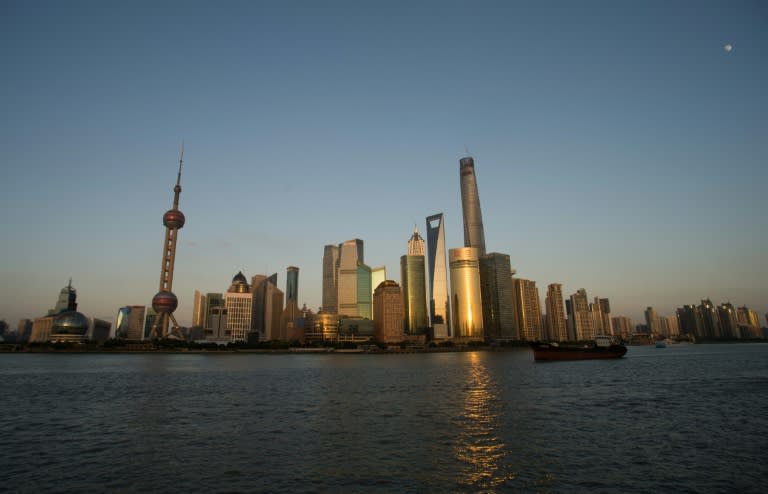World Bank warns China over state financial control
The World Bank on Wednesday urged China to accelerate reform of its state-dominated financial sector, warning that failure to address the issue could end "three decades of stellar performance" for the world's second-largest economy. The ruling Communist Party has pledged a wide range of economic reforms and the Washington-based institution said reducing the "unique and distorted role of the state" in banking and the wider financial sector was crucial. "Wasteful investment, overindebtedness, and a weakly regulated shadow-banking system," had to be addressed for the broader agenda to succeed, it said. The comments in the China Economic Update were unusually forthright for the World Bank. "Unlike other countries, in China the state still maintains pervasive ownership and control of banks and other financial institutions," it said, including with powerful internal Communist Party committees and authorities appointing and dismissing top executives. "The state has formal ownership of 65 percent of commercial bank assets and de facto control of 95 percent of these assets, making it an outlier by international standards." In some cases, it added, authorities were simultaneously owners, regulators and customers of banks. China's financial system was still "unbalanced, repressed, costly to maintain, and potentially unstable", the bank said, repeating its description from a 2012 report. "Urgency for fundamental reform has further intensified as excess capacity and indebtedness in many economic segments accumulate, amid growing evidence of financial distress," it said. "Failure to address these outcomes could deflect the economic trajectory after three decades of stellar performance." In the document, the World Bank left its economic growth estimate for China this year at 7.1 percent. "Progress in rebalancing the sources of growth in domestic demand will remain incremental," it said. China's leaders are trying to engineer a transformation of the country's growth model whereby consumer demand becomes the main driver rather than investment. "China’s financial system was developed to serve the old investment-driven growth model, which is not effective currently but was effective in the past," World Bank senior economist Karlis Smits said at a briefing on the report. "Comprehensive reforms in the financial sector should enable the financial system to reallocate credit to those sectors that can maintain reasonable growth over the medium-term," he added. China has set itself a target of about 7.0 percent growth in gross domestic product (GDP) for this year, though weak data during the first half of the year has led many private economists to predict the final figure could be lower. The World Bank kept its GDP growth forecast for next year in China at 7.0 percent and at 6.9 percent in 2017. Smits stressed, however, that the organisation was well aware of potential hazards facing China's economy. "We are very cognisant of significant downside risks to our baseline scenario", he said, citing indebtedness in China's corporate sector among other dangers. Efforts to transform China's economy over the long-term could produce negative short-term effects, he added. "Reforms to address excess capacity in select industries would have impact on employment levels," he said.



